Are you a proud owner of an African Grey parrot and sometimes wonder why it gets angry or displays aggressive behavior? Understanding your feathered friend’s emotions is key to providing the best care and ensuring a happy and healthy life for your pet. In this article, we will delve into the fascinating world of African Grey parrot anger and provide you with valuable tips on how to manage and care for your feathered companion.
Table of Contents
African Grey parrots are highly intelligent creatures known for their ability to mimic speech and exhibit complex emotions. Just like humans, they can experience anger in response to certain triggers or situations. By understanding the underlying causes of their anger and learning effective management techniques, you can prevent potential aggression and create a harmonious environment for your pet.
Learn how to recognize and manage African Grey Parrot anger with practical tips for caring for your feathered friend, ensuring a happy and healthy bond with your parrot.
From recognizing body language signals to creating a stimulating and enriching environment, I will guide you through the steps to nurturing a happy and well-adjusted African Grey parrot. With our expert advice, you can establish a strong bond with your feathered friend and provide them with the love and care they deserve. So let’s dive in and explore the world of African Grey parrot anger together!
Common triggers for anger in African Grey Parrots

African Grey parrots are known for their highly sensitive and intelligent nature. Identifying the common triggers for their anger is crucial in managing their behavior effectively. One major trigger is environmental changes. African Greys thrive on routine and predictability. A move to a new home, rearranging their cage, or even changes in the household can provoke feelings of insecurity and lead to anger. Their natural instinct is to seek stability, and any disruption can cause distress, resulting in aggressive or anxious behaviors.
Another notable trigger is social interaction, or the lack thereof. These parrots are social creatures that require regular interaction with their human companions. If they feel neglected or isolated, they may express their displeasure through vocalizations or biting.
Similarly, overstimulation from loud noises, unfamiliar guests, or other pets can also push them to react aggressively. Understanding their need for social engagement and a peaceful environment is essential for maintaining their emotional well-being.
Additionally, changes in their daily routine, such as feeding times or play schedules, can trigger feelings of anger. African Grey parrots are creatures of habit, and when their predictable routines are disrupted, they may feel stressed or frustrated. This can lead to undesirable behaviors if not addressed promptly. Recognizing these triggers is the first step towards creating a harmonious relationship with your feathered friend.
Signs of anger in African Grey Parrots
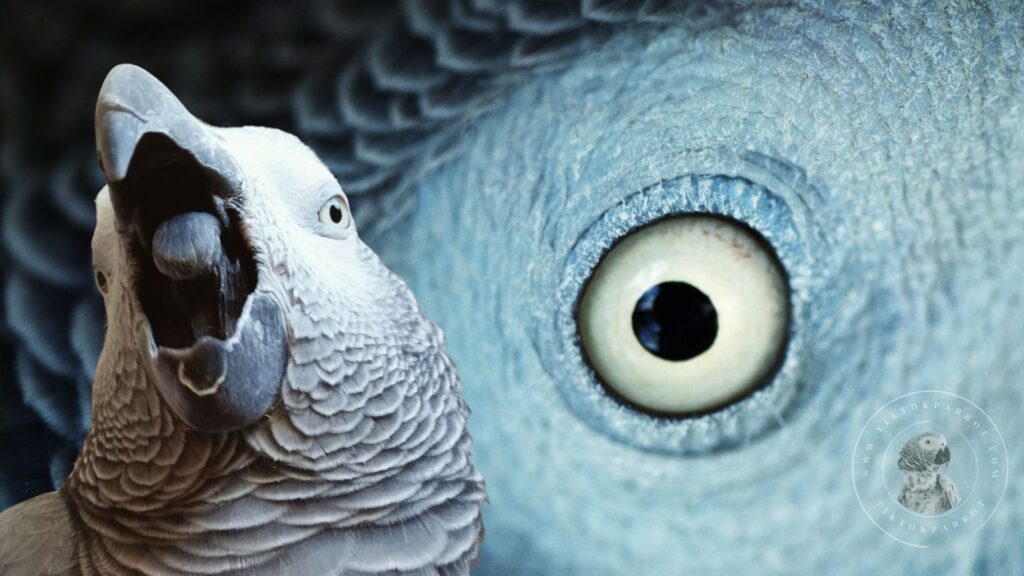
Recognizing the signs of anger in African Grey parrots is vital for effective management of their behavior. One prominent indicator is vocalizations. When an African Grey is angry, it may produce loud squawks, screams, or harsh sounds.
These vocalizations are often more intense than their usual chatter and serve as a warning sign that they are feeling threatened or upset. Paying attention to changes in their vocal patterns can provide insight into their emotional state.
Physical body language is another crucial element in identifying anger. An African Grey may puff up its feathers, raise its wings, or adopt a defensive posture. This display can signify that the bird is feeling threatened or cornered.
Additionally, an angry parrot may also engage in aggressive behaviors such as biting or lunging towards perceived threats. Understanding these physical cues is essential for recognizing when your parrot is feeling aggressive or upset.
Furthermore, behavioral changes can also indicate anger. If an African Grey suddenly becomes reclusive and stops engaging with its surroundings, it might be a sign of frustration or anger. Similarly, if they exhibit destructive behaviors, such as chewing on their cage or toys, it may be an outlet for their pent-up emotions. Observing these changes in behavior is critical in determining the underlying causes of their anger and addressing them appropriately.
Understanding the underlying causes of anger in African Grey Parrots
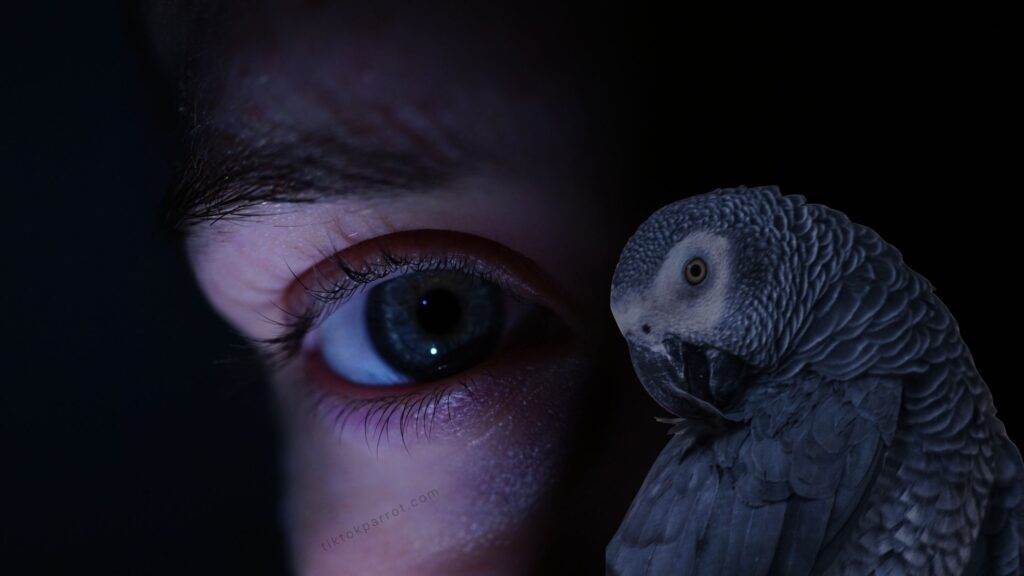
To effectively manage anger in African Grey parrots, it is essential to understand the underlying causes of their emotions. One significant factor is fear. African Greys can become frightened due to various stimuli, including loud noises, sudden movements, or the presence of unfamiliar individuals.
This fear response can quickly escalate into anger if the bird feels cornered or threatened. Understanding what scares your parrot can help mitigate these triggers and create a safer environment.
Another underlying cause is boredom. African Grey parrots are highly intelligent and require mental stimulation to prevent feelings of frustration. If they are not provided with enough engaging activities or social interaction, they may express their anger through destructive behaviors or vocalizations. Enriching their environment with toys, puzzles, and opportunities for socialization is crucial for maintaining their emotional balance.
Additionally, health issues can also contribute to changes in behavior, including anger. If an African Grey is experiencing pain or discomfort, it may become irritable or aggressive.
Regular veterinary check-ups are essential for identifying any health problems early on. Understanding the physical and emotional needs of your parrot allows you to address potential issues before they escalate into anger or aggression.
Tips for managing and preventing anger in African Grey Parrots
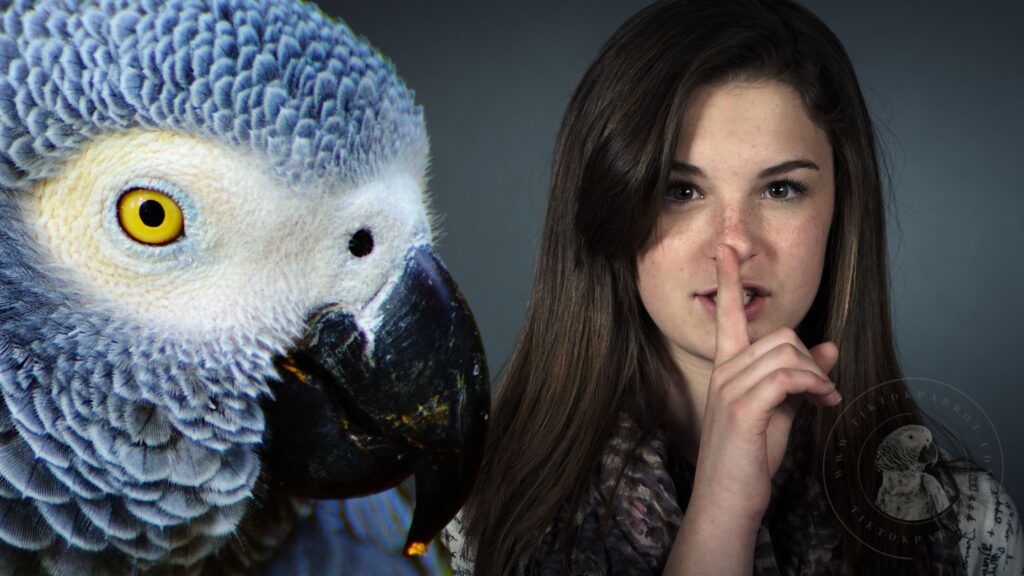
Managing and preventing anger in African Grey parrots involves a combination of awareness, patience, and proactive strategies. One effective approach is to establish a consistent routine.
Providing a structured daily schedule for feeding, playtime, and social interaction can create a sense of security for your parrot. This predictability helps reduce anxiety and minimizes the likelihood of anger stemming from environmental changes.
Another important strategy is to engage your African Grey in regular mental and physical stimulation. Providing a variety of toys, puzzles, and activities can keep their minds occupied and reduce boredom-related frustration.
Interactive playtime, including games that encourage problem-solving and exploration, can also strengthen your bond while keeping their anger at bay. Regular social interaction is essential, as it fulfills their need for companionship and helps prevent feelings of neglect.
Additionally, practicing positive reinforcement techniques can effectively manage anger. Rewarding desirable behaviors with treats, praise, or affection encourages your parrot to engage in positive interactions.
When your parrot exhibits signs of anger, it’s important to remain calm and avoid escalating the situation. By redirecting their focus to a more engaging activity or toy, you can help diffuse their anger and promote a more positive emotional state.
Creating a calm and stimulating environment for your African Grey Parrot
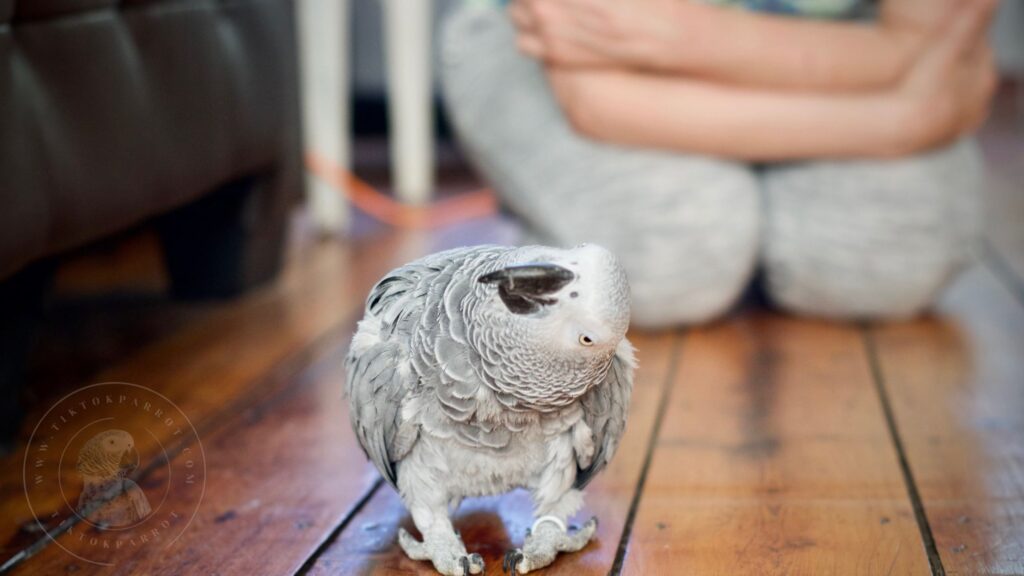
Creating a calm and stimulating environment for your African Grey parrot is crucial for their emotional well-being. Start by designing a dedicated space that is safe and free from potential hazards.
Ensure that their cage is spacious enough for movement and includes perches, toys, and activities that cater to their natural behaviors. The placement of the cage should also be considered; it should be in a quiet area away from loud noises or high-traffic zones, providing a peaceful retreat for your parrot.
In addition to a safe cage environment, incorporating various enrichment activities can keep your parrot mentally stimulated.
Rotate their toys regularly to maintain their interest and provide new challenges. Interactive toys that require problem-solving skills can be particularly beneficial in keeping their minds engaged. Additionally, providing opportunities for supervised out-of-cage time can allow them to explore their surroundings safely, promoting physical exercise and mental stimulation.
Establishing a predictable daily routine is another way to create a calming atmosphere. Consistent feeding times, play schedules, and social interactions can help your parrot feel secure and reduce feelings of anxiety.
Incorporating calming activities, such as gentle music or quiet time, can also contribute to a relaxed environment. By prioritizing their comfort and stimulation, you can foster a peaceful space for your African Grey parrot to thrive.
Training techniques for managing anger in African Grey Parrots
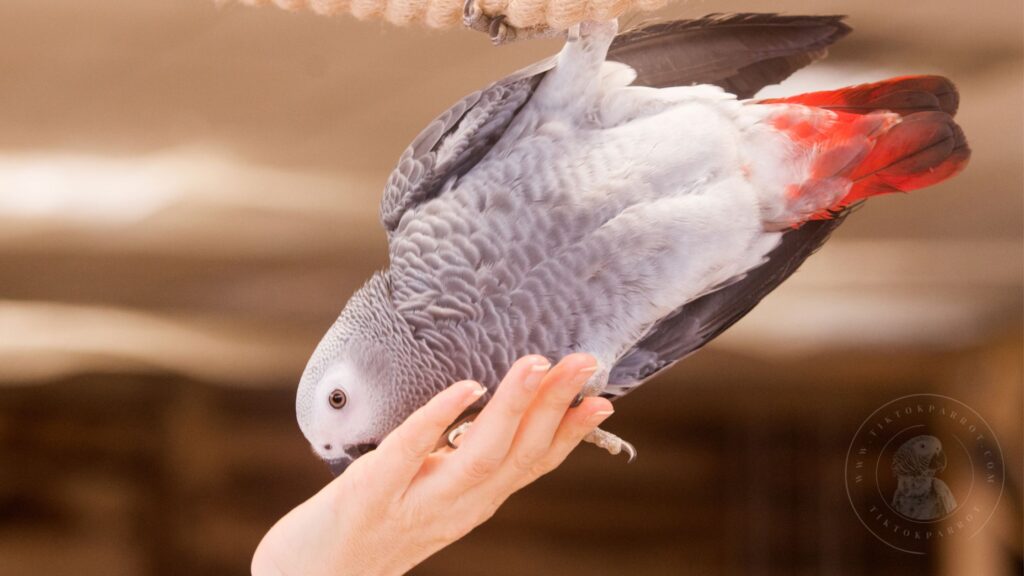
Training techniques play a vital role in managing anger in African Grey parrots. One effective method is desensitization, which involves gradually exposing your parrot to the situations or stimuli that trigger their anger.
Start by introducing these triggers at a low intensity, allowing your parrot to become accustomed to them without feeling threatened. Over time, you can slowly increase the intensity, rewarding your parrot with treats or praise for remaining calm during the process.
Positive reinforcement training is another powerful technique for managing anger. Whenever your parrot exhibits calm behavior, be sure to reward them with treats, affection, or verbal praise. This reinforces the idea that being calm and relaxed leads to positive outcomes.
Conversely, avoid punishing aggressive behaviors, as this can lead to increased anxiety and fear, exacerbating the problem. Instead, redirect their attention to a preferred activity or toy when they show signs of anger.
Consistency is key in training efforts. Establish clear commands and signals that your parrot can learn to associate with specific behaviors. Repetition and patience will help reinforce these commands, allowing your African Grey to respond positively during moments of anger.
By investing time in training and understanding their behavior, you can create a supportive environment that fosters emotional balance and minimizes anger-related issues.
Proper diet and nutrition for a balanced mood in African Grey Parrots
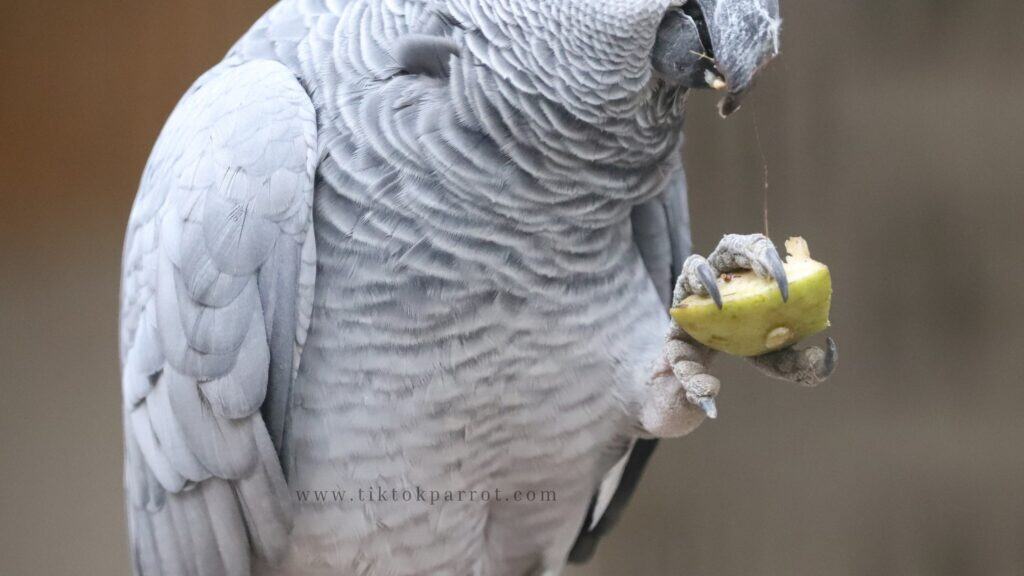
A proper diet and nutrition are essential for maintaining a balanced mood in African Grey parrots. These intelligent birds require a varied diet that includes fruits, vegetables, grains, and high-quality pellets.
Nutritional deficiencies can lead to irritability and behavioral issues, so it’s crucial to provide a well-rounded diet. Fresh fruits and vegetables, such as leafy greens, carrots, and berries, not only provide essential vitamins and minerals but also keep your parrot engaged during mealtime.
In addition to providing a diverse diet, it’s important to monitor portion sizes. Overfeeding can lead to obesity, which can negatively impact your parrot’s overall health and mood. Establishing a feeding schedule that includes appropriate portion sizes will help maintain a healthy weight and promote better behavior.
Additionally, avoid feeding your African Grey unhealthy snacks, such as processed foods or sugary treats, as these can contribute to mood swings and irritability.
Hydration is equally important for your parrot’s mood stability. Ensure that fresh water is always available, as dehydration can lead to lethargy and irritability. Regularly clean and refill water containers to encourage your parrot to drink more.
By prioritizing a balanced diet and proper hydration, you can help support your African Grey parrot’s emotional well-being and prevent mood-related issues.
Seeking professional help for severe anger issues in African Grey Parrots

In some cases, despite best efforts, an African Grey parrot may exhibit severe anger issues that require professional intervention. If you notice persistent aggressive behaviors, such as biting or excessive screaming, it may be time to consult an avian veterinarian or a certified animal behaviorist.
These professionals can help identify underlying health issues or behavioral concerns that may be contributing to your parrot’s anger.
Behavioral therapy can be beneficial for addressing severe anger issues. A professional can provide tailored strategies to help modify your parrot’s behavior and develop coping mechanisms. They may also recommend specific training techniques or environmental modifications to create a more supportive atmosphere for your feathered friend. Seeking professional guidance can equip you with the necessary tools to manage your parrot’s anger effectively.
Additionally, it’s essential to remain patient and understanding during this process. Behavioral changes take time, and it’s crucial to provide a supportive environment for your African Grey.
Working with a professional can help you build a stronger bond with your parrot while addressing the root causes of their anger. Remember, seeking help is a proactive step towards ensuring a happy and healthy life for your beloved companion.
Building a strong bond and trust with your African Grey Parrot
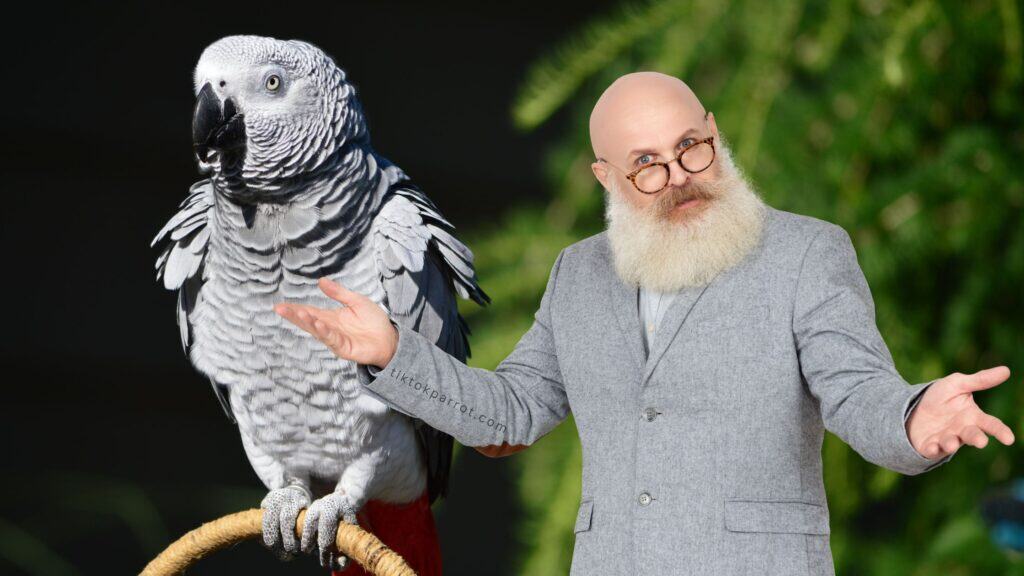
Building a strong bond and trust with your African Grey parrot is fundamental to managing their anger and ensuring their well-being. Consistent interactions, positive reinforcement, and understanding their emotional needs create a solid foundation for your relationship.
By investing time in nurturing this bond, you can foster a sense of security that reduces feelings of anger and frustration in your parrot.
Moreover, patience and empathy play significant roles in your journey together. Recognizing that your parrot has its own unique personality and emotional responses allows you to approach their behavior with compassion. When you understand the triggers and signs of anger, you can respond appropriately, reinforcing trust and reducing anxiety.
Incorporating these strategies into your daily routine will not only help in managing anger but also enrich the overall relationship between you and your African Grey parrot. By prioritizing their emotional and physical needs, you can create a harmonious environment where both you and your feathered friend can thrive together.
If you liked this blog, please share it with your family and friends who might also find it helpful. If you love African Greys, join our community of Grey owners! You can meet other owners, share tips and learn from each other.
Stay safe and much love!



